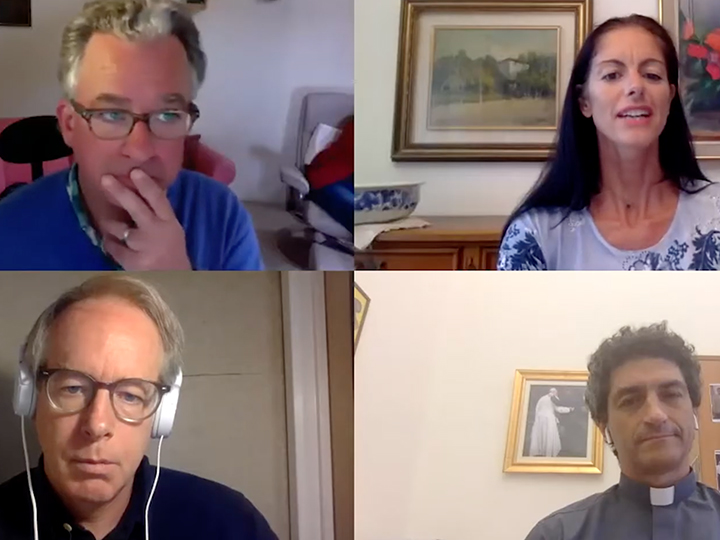Pope Francis and the Reform of the Church
On August 31 Georgetown University and La Civiltà Cattolica, a prominent Jesuit journal in Rome, brought together three prominent speakers for a webinar to discuss the challenges facing Pope Francis in his efforts to reform the Church and respond to the pandemic and its challenges.

The conversation was moderated by Debora Tonelli, the Georgetown University representative in Rome, and co-sponsored by Georgetown's Initiative for Catholic Social Thought in Public Life and Berkley Center for Religion, Peace, and World Affairs.
The Pandemic as an Impetus for Change
After Father Antonio Spadaro, S.J., director of La Civiltà Cattolica, convened the event, Tonelli asked Rev. Augusto Zampini, the adjunct secretary of the Dicastery for Promoting Integral Human Development, to reflect on the challenges posed by the pandemic and their implications for Pope Francis' reform project.
"The Church needs to respond in a radical way to a radical crisis," he stated. "COVID-19 is pushing the Church into refining its mission."
Zampini commented on the practical challenges confronting the Church during the crisis. Despite the fact that most Catholic services have been suspended in order to prevent the spread of the virus, Zampini offered an optimistic outlook of the Church and its wider social role.
The focus of the Church is to promote communion and union in a world that is promoting social distancing.
Zampini emphasized that emphasized that addressing the pandemic and other global challenges will require new forms of cooperation. “All individuals have something to contribute, but we cannot get out of any humanitarian and world crisis without a community,” he declared. “Common problems are only solved with communities.”

Dynamics of Reform
Paul Elie, senior fellow with the Berkley Center for Religion, Peace, and World Affairs, emphasized the importance of symbolic action in Pope Francis’ efforts to reform the Church adapt it to a new world.
He cited the example of Francis attending confession in Rome; standing shoulder-to-shoulder with other religious leaders at the thirtieth anniversary of the 1986 Prayer for Peace meeting in Assisi; and standing alone in the center of Vatican Square during the COVID-19 pandemic. For Elie, Francis is a “personalist Pope" who "looks the whole world in the eyes.”
According to Austen Ivereigh, a prominent British journalist and biographer of Francis, a reformed Church would be one focused on mercy and radical charity. “The extent to which the present Church can reconcile and heal," he explained, will determine its success in a modern context. Ivereigh concluded that ultimately Pope Francis is trying to turn a bureaucracy trying to defend itself from the world into one that serves the world.
Spadaro summarized why Pope Francis is well-suited to help the Church respond creatively to today’s challenges.
The Pope lives a constant dynamic of discernment, which opens him to the future. It opens him also to the future of the reform of the Church.
